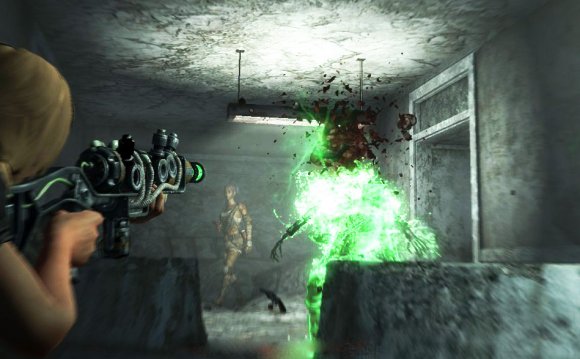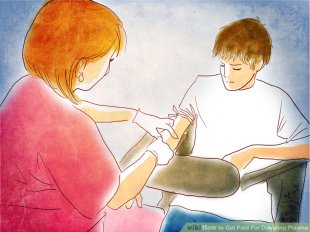

Steps
Part 1
Preparing to Donate Plasma- Make sure you are a good candidate for plasma donation. Are you in generally good health? Do you already donate blood? If you answered 'yes' to both of these, you're likely a good candidate for plasma donation, although you will only be able to confirm your eligibility for donation on site at a plasma collection center. If you would like to donate, discuss this with your physician who will be able to advise you further on your candidacy.
- If you have Type AB blood, you are an ideal candidate for donating plasma. Type AB plasma is universal. This means that your plasma can be received by anyone, irrespective of whatever that person's own blood type is. In addition, because only 4% of the population has Type AB blood, this makes your plasma even more in need.
- In addition to getting the okay from your physician, you will also need to meet some minimum requirements on behalf of the plasma donation centers (see Step 3).
- Be aware that donating plasma is completely safe. Plasma donation in certified collection centers takes place in a highly controlled, sterile environment by professionally trained medical staff.
- All equipment used for plasma collections is sterilized. Moreover, any equipment that comes into contact with you is used only once to eliminate the possible transmission of viral infections.
- Donating plasma is low-risk and has minimal and often no side effects. These minimal side effects include feelings of faintness or bruising from the needle. If you exhibit any other side effects after donating plasma, you should consult your physician.
- Meet the requirements for donor eligibility.
 There are a number of eligibility requirements that you need to meet in order to donate your plasma. However, it is important to note that ultimately whether or not you are eligible is at the discretion of the particular plasma collection center you visit. Eligibility requirements include:
There are a number of eligibility requirements that you need to meet in order to donate your plasma. However, it is important to note that ultimately whether or not you are eligible is at the discretion of the particular plasma collection center you visit. Eligibility requirements include:
- Age - You must be at least 18 years old.
- Weight - You should weigh at least 110 pounds or 50 kilograms.
- Medical exam - You must pass a medical exam.
- Medical history - You must complete an extensive medical history screening.
- Testing - You must test as non-reactive for transmissible viruses (such as hepatitis and HIV).
- Diet - You should follow a recommended diet that includes 50 - 80 grams of protein every day.
- Find a plasma collection center. There are hundreds of plasma centers in the United States. You can easily locate a center by inputting your city, state, and/or postcode in the Donating Plasma Organization's searchable directory.
 You do not need to make an appointment in advance of visiting a center.
You do not need to make an appointment in advance of visiting a center.
- You can set the radius of the search to within 10 miles of where you live if you want to find one nearby.
- You could also check with local hospitals or clinics to see if they can help you locate a center.
- Call the center ahead of your visit to find out its hours of operation and the compensation it offers or to ask any additional questions. Each company establishes its own compensation scale, so you may want to check out the different options beforehand.
- Bring proper identification with you. The center will want to be able to confirm that you are who you say you are. You will need:
- Current photo I.D. (such as a driver's license)
- Social Security or Border Crossing ID
- Proof of local address (such as a current lease agreement, a piece of mail (like a phone bill) postmarked in the past 30 days with your name and address on the front, etc.)
- Drink plenty of water and eat something beforehand. Before heading to the plasma collective facility to donate, make sure you are fully hydrated and that you've eaten something.This will decrease the likelihood of any side effects of faintness or dizziness.
- Drink a 4-6 ounce glass of water, juice or other caffeine-free liquid before you donate. Avoid consuming any alcohol within 24 hours of your donation.
- Eat a meal rich in protein and iron about 3 hours before you donate. Protein-rich foods include beans, cheese, eggs, nuts, beef, chicken, milk and yogurt, among others. Iron-rich foods include beans, broccoli, chicken, ham, turkey, beef, and leafy greens, etc. Avoid foods high in fat, like chips, pizza or French fries.


YOU MIGHT ALSO LIKE

What can you find in your backyard

How Can You Find Your Sexy Scent?

Basic English Grammar - Can you find the errors?









